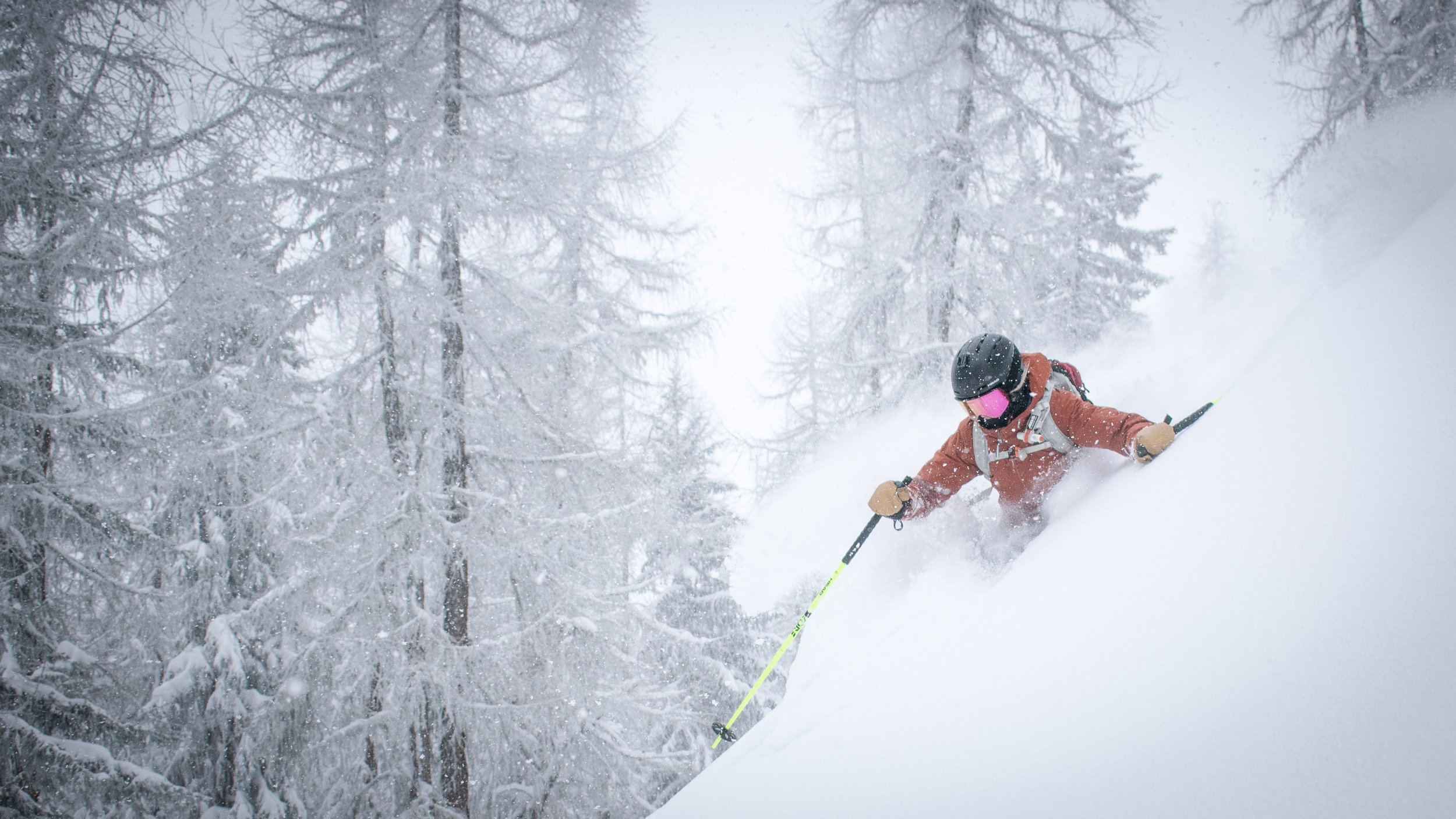Is lift accessed downhill skiing a good activity for your wellbeing ?
Most of the health literature related to skiing and snowboarding deals with the negative health aspects of these sports- the injuries and other health risks.
Unfortunately there is little scientific examination of the benefits of these snow sports to our health. In the recent few years, however, there has been increased interest, largely inspired by The Salzburg Skiing for The Elderly Study. The basis for this study was to examine whether downhill (lift serviced) skiing would meet the requirements of WHO recommended exercise for health in older adults during winter months.
What are the known and potential health benefits of Downhill Skiing?
Improved Heart and Metabolic Health
Downhill skiing is, perhaps surprisingly, a great form of cardiorespiratory exercise . The demands are higher when carving turns, doing short vs longer radius turns and skiing runs continuously top to bottom.
One study which looked at people's self reported skiing volume versus other health risk factors found that the more they skied, the more improvements were seen in blood pressure, cholesterol levels and diabetes.
Other studies have looked at the energy expenditure , maximal heart rates , oxygen utilisation and lactate levels in downhill skiing compared to cross country skiing, hiking, and indoor cycling.
Basically downhill skiing acts like an interval exercise session utilising mainly eccentric and isometric muscle contraction of large muscle groups. . Peak heart rates reach those of the other exercises in the same subjects. Due to the rest time during uphill transport in downhill skiing , it takes about 2.5 times as long to reach the same total energy expenditure.
In short, downhill skiing meets the requirement of the WHO recommended exercise regime for health and in countries that are snow covered in winter it may be one of the few outdoor options available to older adults wanting to keep up their activity levels.
Improved Skeletal Muscle Strength and Maintenance
It is expected that skiers of all ages would show increase in strength and muscle hypertrophy with a consistent ski program.
It was found that during a 12 week skiing program , older participants were able to significantly improve their leg strength . The eccentric contractions in turning , particularly of the quadriceps group result in significant force production at lower metabolic cost compared to concentric or isometric contraction.
So downhill skiing may actually be a good way to work on muscle strength an hypertrophy for those with lower fitness levels.
Improved Bone Health
Although you are sliding across a relatively frictionless surface, skiing does actually impart large impact forces on the skeleton . Obviously some forms of skiing more so than others. It has not actually been studied in recreational skiers but bone density appears to be higher in elite skiers than matched controls . Of course elite skiers experience higher reaction forces on snow and also follow rigorous weight and plyometric training programs. Yet this is how we can learn to improve also- taking elements of what these athletes do and adapt them to our abilities and needs.
Improved Balance and Coordination
Maintenance of our proprioceptive system is essential as we age. Falls prevention, ability to perform our athletic pursuits longer - all rely on optimum balance and coordination. Skiing requires significant postural control and balance , however the studies regarding any flow on effects are ambiguous. Balance tasks are very specific and some studies suggest that even elite skiers may not show improved static balance compared to less experienced skiers. It does appear , however that postural control and balance is improved in slipping or sliding which may still confer some protection against falls.
Improved Mental Health
In a previous post I have discussed the health benefits of nature. Exercise in nature has been shown to have added effects over indoor exercise alone . It could be imagined that skiing would also confer these benefits. Studies have shown increased feelings of well being related to skiing and some positive psychological effects in adults over 60 who engage in regular ski days .
Other postulated benefits from skiing relate to the cold exposure (increasing mitochondrial biogenesis) and intermittent hypoxia in higher altitude areas.
What if you only ski one to 2 weeks a season or year?
The good news is that your ski vacation can still be good for you. Obviously the best approach is to prepare for it by doing ski specific exercises leading up to the trip. Also, if you view your skiing as a healthy past time and minimise overeating, excess alcohol consumption and late nights it can be the healthiest thing you do for your body all year. If all you ask of it is a holiday and a party, then you at least get some exercise as well.
If you need any help achieving your health and fitness goals and want to keep skiing, surfing, hiking or snowboarding as you get older reach out to Primal Regeneration . I offer Health Coaching specialising in these areas . My background as doctor, Primal Health and Fitness Coach, ski coach and surfer all contribute to my ability to help you on your journey.




